Opinion
Continuing craziness

By Dr. Upul Wjayawardhana
As a Sinhala Buddhist I should really be overjoyed, as many Buddhist priests are being appointed to positions of eminence, but I am not. I would be delighted if they are appointed to positions that have any relevance to Buddha Sasana but what is happening is just the opposite; they are given positions for political reasons. Close on the heels of appointing a political Bhikku who has a criminal record, with not one but two convictions, to head a Presidential Task Force pertaining to law and order, comes the news that a Bhikku who is, of all things, a trade union leader is to be the Chancellor of Colombo University!
Though I cannot find any justification whatsoever, other than the assumption that the all-powerful President of Sri Lanka can do whatever he wishes, for the appointment of a Bhikkhu with a tainted reputation to head a PTF, the appointment of a Bhikku as the Chancellor of a University can very well be justified; provided there is qualifying academic excellence or record of service to education. Many erudite Bhikkus have held positions of Chancellor and Vice Chancellor of our universities, the responsibilities of these two roles having changed over time due to educational reforms. Bhikkhus and dignitaries of other religions function as Chancellors of our universities today, but they all have excellent academic backgrounds and have made contributions towards education, whereas this appointment seems totally politically motivated.
Some may argue that engaging in politics should not preclude a Bhikkhu from holding such high academic office. After all, Ven. Walpola Rahula, who was Vice Chancellor of Vidyodaya University from 1966 to 1969, was involved in politics in the past and was beaten, allegedly by ‘UNP thugs’, during JR’s election campaign in Kelaniya. However, Ven. Rahula’s politics was very different to the politics of the present generation of Bhikkus, his being not for personal gain. Even if one were to find fault with this, there were enough other factors to justify suitability. Most are unaware of the vital part he played in ensuring the success of Dr. C.W.W. Kannagara’s education reforms. Most political leaders of the day, as well as the Catholic Church, were against the introduction of ‘Free Education’ and if not for the petition signed by over a million, following the ‘Vidyalankara Declaration’, which was presented to the State Council just before the vote by Ven. Rahula, the Kannangara reforms would not have seen the light of day. Further, he was the first Buddhist monk to be made a Professor in a Western University and his writings in English and French, including his seminal work ‘What the Buddha Taught’, contributed greatly towards the spread of Buddhism in the West.
Contrast this with the Bhikku nominated as the new Chancellor of Colombo University, replacing a religious dignitary of another faith, a recognised educationist. True, Mahinda Rajapaksa owes this Bhikku a lot for his rejuvenation following the unexpected and humiliating defeat in 2015, his temple serving as the focal point, notwithstanding the contested ownership. He has no academic achievements of note, his only claim to fame being that he is the leader of a nurse’s trade union.
I was working in Colombo General Hospital when he started this trade union and well remember the rumours at the time. To his credit, he has shown strength by being its leader since 1969 but it is to the discredit of the Maha Nayakas of Siyam Nikaya that a Bhikku is allowed to hold a position totally unbecoming of a ‘Buddha Putra’. Instead of sanctions, the Bhikku has been rewarded with a Nayaka ‘Pattama’: That is the state of ‘Institutionalised Buddhism’ in Sri Lanka. Now, to cap it all, the government in its craziness has appointed him the Chancellor of Colombo University. Yet another square peg in a round hole!
It is a great pity that the government does not realise the danger of insulting academia. Or, is it done purposely on the basis of pseudo-socialism? I remember well, during the time I worked as the Registrar in Prof Ajwad Macan Markar’s Professorial Medical Unit in Kandy, how the many ‘socialist’ teachers in the Medical Faculty treated, with scant respect, a visiting inspection team from the General Medical Council of the UK. They did not want the GMC to accredit the Peradeniya MBBS degree, so that it would be ‘non-marketable’ internationally. That was their pseudo-socialist solution to the brain drain! Fortunately, it did not happen.
Even more important is the consideration of the new Chancellor’s role in the trade union. However unsuitable, once appointed to this high academic position, surely, he should cease to be the leader of a trade union. However, as nothing is said, it looks as if he will continue to lead the trade union whilst being the Chancellor of Colombo University; a world’s first! Nothing seems impossible in our wonderful ‘Land like no other’!
Most of us have admired the behaviour of the hierarchy of the Catholic Church up to now and even that seems to be getting tarnished. When the Head of Intelligence lodged a complaint with the CID that he had been unfairly accused by a high-ranking Catholic priest, he was requested to attend to record a statement. As the allegations made during the TV interview were of a serious nature, one would have expected him to help the CID to investigate these allegations. Instead, he asked for a week’s delay and has gone to courts to obtain an order to prevent is arrest! Is this a sinister attempt to evoke international disgrace?
Fortunately, in this crazy atmosphere there was a voice of reason. Not surprisingly, it was the Prime Minister who spoke his heart out. He is a consummate politician who is in tune with the pulse of the populace. One wonders whether his speech, on the occasion of the fifth anniversary of the SLPP, was directed mostly at his brothers!
At the helm of our country, we have two Rajapaksa brothers who defeated one of the most ruthless terrorist groups the world has ever seen. Their determination was not shaken by the gloomy predictions of experts who predicted the invincibility of the Tigers. They snubbed the shameless Western politicians who rushed to save the terrorist leader on the cusp of defeat. Considering all this, one wonders why they cannot tame the rice mafia; why they give in to black-marketers and allow the poor to suffer; why they do not establish discipline by being tough with trade unionists who try to exploit the epidemic and others who spread disorder, probably on the instigation of external forces.
The epidemic seems to be subsiding and foreign airlines are starting flights giving hope for tourism. Do hope, am sure they can, the Rajapaksa brothers repeat their past performance, so that the prevailing craziness stops and Sri Lanka starts the journey towards prosperity!
Opinion
LG polls, what a waste of money!
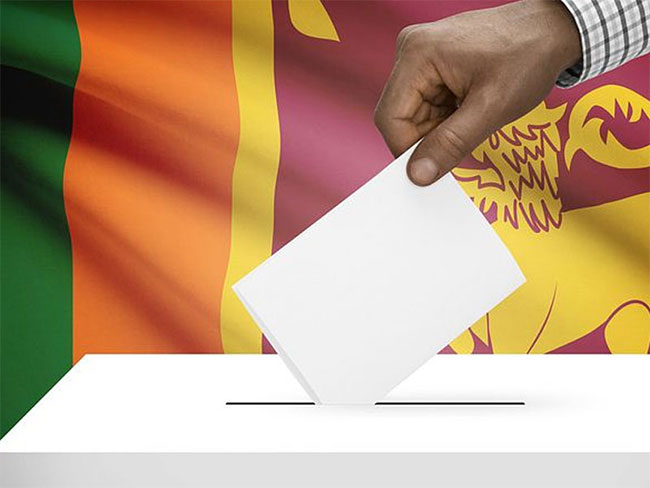
If the people of this country were asked whether they want elections to the local government, majority of them would say no! How many years have elapsed since the local councils became defunct? And did not the country function without these councils that were labelled as ‘white elephants’?
If the present government’s wish is to do the will of the people, they should reconsider having local government elections. This way the government will not only save a considerable amount of money on holding elections, but also save even a greater amount by not having to maintain these local councils, which have become a bane on the country’s economy.
One would hope that the country will be able to get rid of these local councils and revert back to the days of having competent Government Agents and a team of dedicated government officials been tasked with the responsibility of attending to the needs of the people in those areas.
M. Joseph A. Nihal Perera
Opinion
What not to do
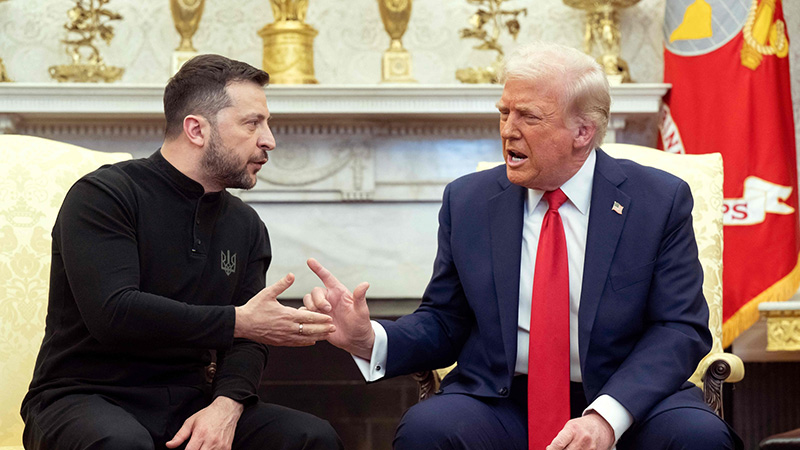
By Dr Upul Wijayawardhana
It is immaterial whether you like him or not but one thing is crystal clear; Donald Trump has shown, very clearly, who is the boss. Surely, presidents of two countries are equal; perhaps, that is the impression Volodymyr Zelensky had when he went to the White House to meet Trump but the hard reality, otherwise, would have dawned on him with his inglorious exit! True, the behaviour of President Trump and VP Vance were hardly praiseworthy but Zelensky did what exactly he should not do. Afterall, he was on a begging mission and beggars cannot be choosers! He behaved like professional beggars in Colombo who throw money back when you give a small amount!!
Despite the risk of belonging to the minority, perhaps of non-Americans, I must say that I quite like Trump and admire him as a straight-talking politician. He keeps to his words; however atrocious they sound! Unfortunately, most critics overlook the fact that what Trump is doing is exactly what he pledged during his election campaign and that the American voters elected him decisively. When he lost to Biden, all political commentators wrote him off, more so because of his refusal to admit defeat and non-condemnation of his supporters who rioted. When he announced his intention to contest, it only evoked pundits’ laughter as they concluded that the Republican Party would never nominate him. Undaunted, Trump got the party to rally round him and won a non-consecutive second term; a feat achieved only once before, by Grover Cleveland around the end of the nineteenth century. His victory, against all predictions, was more decisive as he got more collegiate votes and, even though it does not matter, won the popular vote too which he did not get when he got elected the first term. Even his bitterest critics should accept this fact.
Zelensky was elected the president of Ukraine after the elected pro-Soviet president was deposed by a ‘peoples revolution’ engineered by the EU with the support of USA. After this, the EU attempted to bring Ukraine to NATO, disregarding the Munich agreement which precipitated the Russian invasion. He should have realised that, if not for the air-defence system which Trump authorised for Ukraine during his first term, Russian invasion would have been complete. It may well be that he was not aware as when this happened Zelensky may still have been the comedian acting the part of the president! Very likely, Trump was referring to this when he accused Zelensky of being ungrateful.
Zelensky also should have remembered that he disregarded requests from Trump, after his defeat by Biden, to implicate Biden’s son in some shady deals in Ukraine and that one of the last acts of Biden was to pardon his son and grant immunity to cover the alleged period. Perhaps, actions of the European leaders who embrace him every time they see him, as a long-lost brother, and invitations to address their parliaments has induced an element of the superiority complex in Zelensky that he behaved so combative.
Trump wanted to be the mediator to stop the war and spoke to Putin first. Instead of waiting for Trump to speak to him, egged on by EU leaders Zelensky started criticising Trump for not involving him in the talks. His remark “He should be on our side” demonstrated clearly that Zelensky had not understood the role of a mediator. His lack of political experience was the major reason for the fiasco in the White House and the subsequent actions of Trump clearly showed Zelensky where he stands! PM Starmer and President Macron seem to have given some sensible advice and he seems to be eating humble pie. In the process Trump has ensured that the European nations pay for their defence than piggy-backing on the US, which I am sure would please the American voter. By the way, though Macron talks big about defence France spends less than 2% of GDP. Trump seems vindicated. Of course, Trump could be blamed for being undiplomatic but he can afford to be as he has the upper hand!

Ranil on Al Jazeera
Zelensky has shown what not to do: instead of being diplomatic being aggressive when you need favours! Meanwhile, Ranil has shown what not to do when it comes to TV interviews. God only knows who advised him, and why, for him to go ‘Head to Head’ with Mehdi Hasan on Al-Jazeera. Perhaps, he wanted to broadcast to the world that he was the saviour of Sri Lanka! The experienced politician he is, one would have expected Ranil to realise that he would be questioned about his role in making Sri Lanka bankrupt as well, in addition to raising other issues.
The interview itself was far from head to head; more likely heads to head! It turned out to be an inquisition by Tiger supporters and the only person who spoke sense being Niraj Deva, who demonstrated his maturity by being involved in British and EU politics. The worst was the compere who seems keen to listen his own voice, reminding me of a Sinhala interviewer on a YouTube channel whose interviews I have stopped watching!
Ranil claims, after the interview was broadcast, that it had been heavily edited reduced from a two-hour recording. Surely, despite whatever reason he agreed to, he should have laid ground rules. He could have insisted on unedited broadcast or his approval before broadcast, if it was edited. It was very naïve of Ranil to have walked in to a trap for no gain. Though his performance was not as bad as widely reported, he should have been more composed at the beginning as he turned out to be later. Overall, he gave another opportunity for the Tiger rump and its supporters to bash Sri Lanka, unfortunately.
Medhi Hasan should watch some of David Frost interviews, especially the one with Richard Nixon, and learn how to elicit crucial information in a gentle exploratory manner than shouting with repeated interruptions. He does not seem to think it is necessary to give time for the interviewee to respond to his questions. I will never watch Al-Jazeera’s “Head to Head” again!
Ranil’s best was his parting shot; when asked by Hasan whether he would contest the next presidential election, he said “No, I will retire and watch Al-Jazeera and hope to see you better mannered”!
Opinion
Ajahn Brahm to visit SL in May 2025
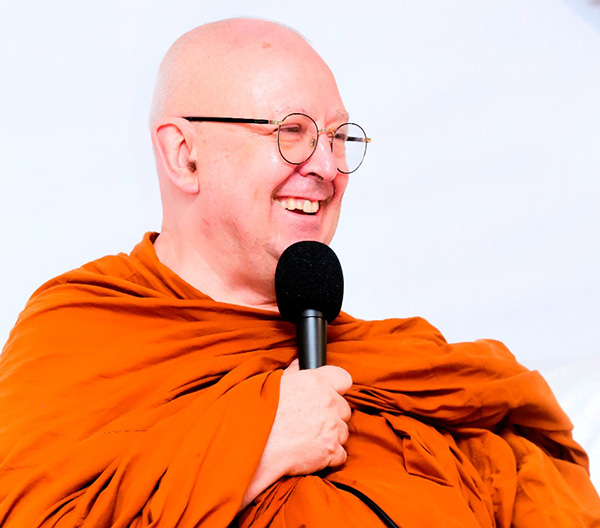
The Ajahn Brahm Society of Sri Lanka (ABSSL) is pleased to announce that Ajahn Brahm will be visiting Sri Lanka for a short stay in May this year. Many, both Buddhists and non-Buddhists, know him and have listened to his addresses made on earlier visits, including his 2023 public talk at the BMICH, which was attended by over 4,000 people.
Ajahn Brahmavamso, popularly known as Ajahn Brahm, is the Head Abbot of Bodhinyana Monastery in Serpentine, Perth. He was a pupil of the famous Thai forest monk Ajahn Chah, considered the best Theravada meditation teacher in the last century. By his own choice, Ajahn Brahmavamso shortened his name and was extra pleased that the initials represent the major religions of the world. He is renowned world-wide as an outstanding meditation bhikkhu, teacher and instructor, guiding thousands of practitioners.
As in previous visits, Ajahn Brahm’s schedule will be packed with addresses, meetings with senior professionals, business leaders, and researchers. This year, a special session has been included for teenagers and young adults.
The agenda planned for him includes:
·
Public address at the BMICH to all irrespective of religion and age; then to a younger audience.
· Exclusive Leadership Forum for senior professionals and business leaders.
· Forum with academics engaged in research at the Centre for Meditation Research, University of Colombo.
· A week-long meditation retreat for the Ven Sangha and experienced lay meditators.
Public Addresses
The public addresses will be on Sunday, May 18, 2025, from 7:00 am to 11:00 am, at the BMICH Main Hall and Sirimavo Halls; Ajahn Brahm moving from one hall to another so the entire audience sees him. Each hall will be well equipped with audio and video presentation. The first address: The Art of Meaningful Living, is designed for all, age notwithstanding, offering wisdom and practical insights for a fulfilling life. The second: Coping with Life Transitions and Emotional Challenges, is a special session tailored for teens and young adults, addressing key challenges faced by them in today’s fast-paced, competitive world. Both talks will be in English, with concise translation to Sinhala by Ven Damita Thera.
Exclusive Forums
On Saturday, May 17, 2025, two exclusive forums will be held at the BMICH Committee Room, Jasmine Hall. The first such session will be with eighty invited Sri Lankan academics and scientists engaged in research on meditation at the Centre for Meditation Research of the University of Colombo. This will be followed in the evening by an interactive session for a hundred invited senior professionals and business leaders, featuring a talk on leadership followed by a Q&A session.
Meditation Retreat
The most significant item on Ajahn Brahm’s programme will be a week-long meditation retreat at the Barberyn Waves Ayurveda Resort in Weligama. Focus is intended to be on the fifty members of the Ven Sangha. A limited number of experienced lay meditators will also have the opportunity to participate.
Participation & Registration
Those interested in attending the public talks at the BMICH are kindly advised to register at to secure free passes. For further information, please contact the Ajahn Brahm Society of Sri Lanka at .
-

 News7 days ago
News7 days agoPrivate tuition, etc., for O/L students suspended until the end of exam
-

 Editorial6 days ago
Editorial6 days agoRanil roasted in London
-
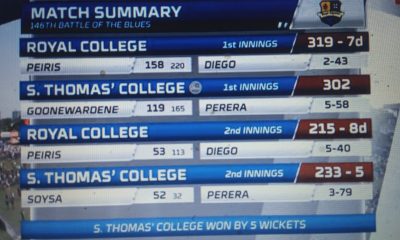
 Latest News6 days ago
Latest News6 days agoS. Thomas’ beat Royal by five wickets in the 146th Battle of the Blues
-
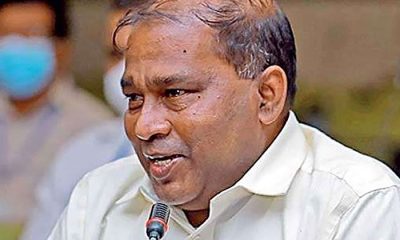
 News7 days ago
News7 days agoTeachers’ union calls for action against late-night WhatsApp homework
-
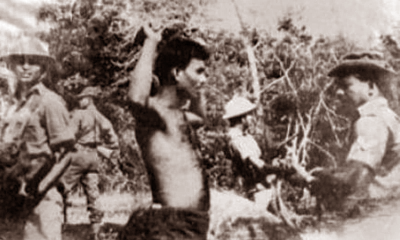
 Features6 days ago
Features6 days agoThe JVP insurrection of 1971 as I saw it as GA Ampara
-

 Opinion5 days ago
Opinion5 days agoInsulting SL armed forces
-
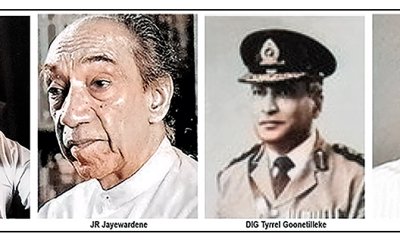
 Features6 days ago
Features6 days agoMr. JR Jayewardene’s passport
-

 Editorial7 days ago
Editorial7 days agoPolice looking for their own head











